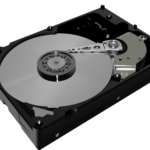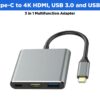The Importance of Regular Laptop/Desktop Computer Maintenance
Laptop and desktop computers have become integral tools for both personal and professional use. To ensure their optimal performance and longevity, regular maintenance is crucial. In this article, we explore the importance of regular computer maintenance and provide essential tips to keep your system running smoothly.
Improved Performance:
Over time, computers accumulate temporary files, unnecessary programs, and other digital clutter that can slow down their performance. Regular maintenance, such as disk clean up and defragmentation, helps optimize system resources and enhances overall speed and responsiveness. By regularly cleaning up your computer, you can enjoy a smoother computing experience and reduce frustrating lags or freezes.
Enhanced Security:
Cyber threats are a constant concern, and computers are vulnerable to malware, viruses, and other malicious attacks. Regular maintenance includes updating antivirus software, applying security patches, and performing system scans to detect and eliminate potential threats. Keeping your computer secure helps safeguard your data, privacy, and sensitive information.
Prevent Data Loss:
Data loss can occur due to hardware failures, system crashes, or accidental deletions. Regular computer maintenance should include regular backups to ensure that your important files are protected. Utilize external hard drives, cloud storage solutions, or automated backup software to create backups of your valuable data. This precautionary measure can save you from the devastating impact of data loss.
Extended Lifespan:
Computers, like any other electronic devices, have a finite lifespan. However, regular maintenance can help extend their longevity. Cleaning the hardware components, checking for signs of wear, and addressing potential issues in a timely manner can prevent major problems and costly repairs. By investing a little time in computer maintenance, you can maximize the lifespan of your system and postpone the need for a replacement.
Optimal Cooling and Ventilation:
Heat build up can negatively impact a computer’s performance and cause hardware components to fail. Dust and debris accumulation can obstruct air vents and impede proper cooling. Regularly cleaning the vents and using compressed air to remove dust from the internal components can help maintain optimal cooling and prevent overheating issues. Adequate cooling prolongs the lifespan of your computer and ensures stable performance.
Tips for Common Computer Issues:
Slow Performance:
Close unnecessary programs running in the background.
Remove unused applications and files to free up disk space.
Increase system memory (RAM) if necessary.
Consider upgrading to a solid-state drive (SSD) for faster data access.
Blue Screen of Death (BSOD):
Update device drivers to the latest versions.
Check for incompatible or faulty hardware.
Scan for malware and viruses.
If the problem persists, consult a professional technician.
Internet Connectivity Problems:
Restart your router/modem.
Check network cables and connections.
Update network drivers.
Disable any conflicting software or firewalls.
Noisy or Overheating Computer:
Clean the air vents and fans regularly.
Ensure proper ventilation by keeping the computer in a well-ventilated area.
Consider using a laptop cooling pad or an additional fan for desktop computers.
Monitor CPU and GPU temperatures using software tools and take appropriate action if temperatures are consistently high.
Enhanced Performance: Regular maintenance helps optimize your computer’s performance. Over time, computers accumulate temporary files, redundant software, and other unnecessary data that can slow down operations. Performing regular maintenance tasks such as disk cleanup, defragmentation, and software optimization can help improve system speed and responsiveness.
Extended Lifespan: Proper maintenance can extend the lifespan of your laptop or desktop computer. By keeping the system clean, managing software and hardware updates, and addressing potential issues proactively, you can prevent premature hardware failure and maximize the longevity of your computer.
Improved Reliability: Regular maintenance reduces the risk of system failures and unexpected crashes. By addressing potential issues before they escalate, you can minimize disruptions to your work or personal tasks. Performing tasks like checking for software updates, monitoring hardware health, and resolving system errors helps ensure your computer operates reliably.
Enhanced Security: Computer maintenance plays a vital role in maintaining your system’s security. Regularly updating your operating system, antivirus software, and other applications helps protect against security vulnerabilities and exploits. It’s important to keep your system up to date to ensure you have the latest security patches and protection against emerging threats.
Data Protection: Regular maintenance tasks, such as backing up your data, can safeguard against potential data loss. Hard drive failures, malware infections, or accidental file deletions can result in significant data loss if you don’t have a backup in place. By regularly backing up your important files and verifying the integrity of backups, you can protect your valuable data.
Efficient Resource Utilization: Maintenance tasks, such as managing startup programs, optimizing system settings, and monitoring resource usage, help ensure efficient resource utilization. By minimizing unnecessary background processes and optimizing system configurations, you can free up system resources for the tasks that matter, enhancing productivity and responsiveness.
Prevention of Software and Hardware Issues: Regular maintenance allows you to identify and address software or hardware issues before they become major problems. Tasks such as checking for software updates, monitoring hardware temperatures, and running diagnostics help detect potential issues early on. Timely troubleshooting and repair can prevent more significant problems down the line.
Better User Experience: A well-maintained computer provides a better overall user experience. It reduces frustration caused by slow performance, system errors, or unexpected crashes. By keeping your computer in optimal condition, you can enjoy smoother multitasking, faster application launches, and a more seamless computing experience.
Cost Savings: Regular maintenance can save you money in the long run. By preventing major hardware failures or data loss, you can avoid costly repairs or professional data recovery services. Additionally, maintaining your computer’s performance can delay the need for a costly hardware upgrade.
Peace of Mind: Knowing that your computer is well-maintained brings peace of mind. You can trust that your system is running smoothly, your data is protected, and you are less likely to encounter unexpected issues. This allows you to focus on your work or personal tasks without worrying about computer-related disruptions.
By prioritizing regular laptop/desktop computer maintenance, you can enjoy improved performance, enhanced security, prolonged lifespan, and a smoother computing experience. Invest a little time in maintaining your computer to reap the long-term benefits it offers.
 Previous Post
Previous Post Next Post
Next Post




Hi, this is a comment.
To get started with moderating, editing, and deleting comments, please visit the Comments screen in the dashboard.
Commenter avatars come from Gravatar.